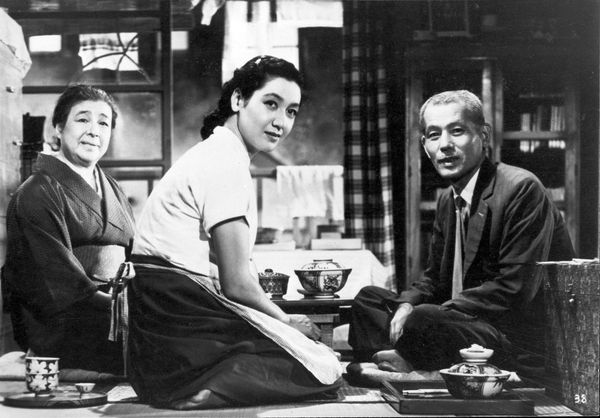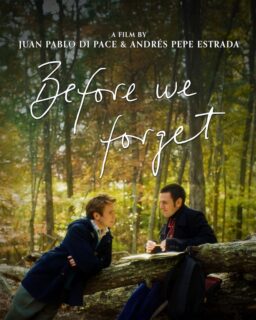Yasujirō Ozu expressed grand philosophical ideas through little moments of everyday life. He is, in my humble opinion, the most sensitive and disciplined director to ever hold a camera. Ozu disregarded how the rest of the world shot films and created his own cinematic language. He broke every rule there was and did it the most subtle way possible. Ozu’s films exercised the most discreet rebellion against cinematic norm.
Widely considered the most Japanese of all film directors, his films feature no heroes or villains. We simply witness life in motion. When we arrive at a significant moment, Ozu cuts to “pillow shots” or perfectly composed shots of landscapes, street signs, or inanimate objects. The idea was to give viewers room to breathe or provide them with the time to contemplate what they had just seen. It’s little thing like “pillow shots” that have allowed Ozu to create his own unique cinematic language.
I think the awareness of how little of the world we’ll experience is what really drew me towards cinema. Films were like gateways to other worlds, and there’s no world I would rather visit than one directed by master Ozu. In a span of two hours, you experience a lifetime. You go through a stranger’s life journey with all its turbulences and unique epiphanies. And then it hits you, the realization that each and every one of us is living a life as vivid and complex as the other.
I’ve always had trouble writing about the films that shook me. Maybe it’s because I always thought that no matter what I wrote, I wouldn’t be able to do the movies any justice. Ozu’s films have repeatedly changed my outlook on life. Particularly, the three masterpieces also known as the “Noriko trilogy,” which he directed in the early 1950’s. All three of the films, “Late Spring,” “Early Summer,” and “Tokyo Story,” had a profound effect on me at key moments of my life.
The first time I watched them back-to-back was around the time my grandfather passed away, and I remember it being one of the most profound experiences ever. Watching these films felt like I was going through something spiritual, something beyond human language. I remember after watching “Tokyo Story,” I kept thinking about what really happens when you lose someone you love. And how that person lives on in your memory, and the memories of every person he or she touched throughout his or her life. Part of who they are lives on inside of us. They become part of who we are, and eventually the time comes for you to project yourself as a memory to future generations, and that part of you is a synthesis of every person you lost and held dearly in your heart. So, in a way, no one ever leaves us; no one passes away, we are merely passed on.
Ozu triggers these thoughts through simple imagery of peaceful scenery. The passing of trains, for example, is a reoccurring image in all of Ozu’s films and it holds much importance in his work. It marks the beginning or end of a life journey. The train is also a link between the younger and older generations for it connects the modern city of Tokyo with the old villages in Japan. Ozu was a master of subtlety and he often examined lives in transition. Maybe that’s why I always found myself resorting to his work when things got tough.
The “Noriko trilogy” helped me cope with my grandfather’s passing, and today it is helping me deal with the news that my father has cancer. Ozu films are achingly bittersweet and therapeutic that way. His serene cinema is that of contemplation; it almost always leaves you lingering in deep reflective thoughts. You find yourself accepting all of life’s uncertainties and inevitabilities. And for the briefest moments, you feel reassured that everything will be ok. I realize this far into my essay that I did not discuss what the films are about, or maybe I have. One thing I know for certain is, the sublime cinema of Ozu transcends life on this planet.











